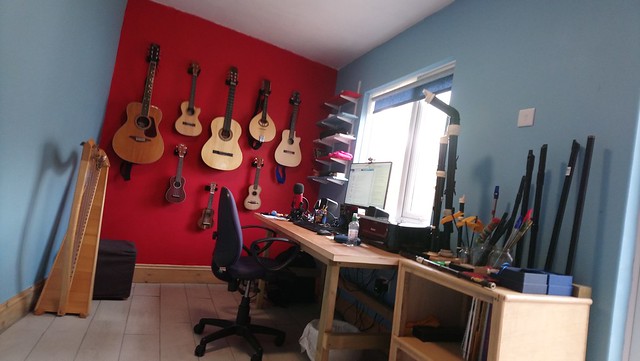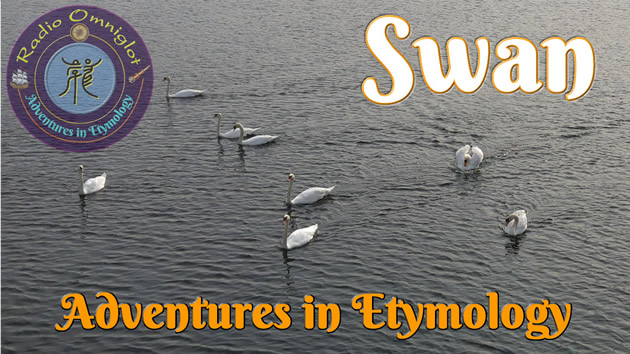Podcast: Play in new window | Download
In this episode we discover the possible Celtic roots of some words for sword, hammer and related things in Romance and Slavic languages.
The Proto-Celtic word *kladiwos means sword, and comes from Proto-Celtic *kladeti (to stab, dig), from Proto-Indo-European *kl̥h₂dʰ-é-ti, from *kelh₂- (to beat, strike) [source].
Related words in the modern Celtic languages include:
- claíomh [kl̪ˠiːvˠ/kl̪ˠiːw] = sword in Irish
- claidheamh [kl̪ˠajəv] = sword in Scottish Gaelic
- cliwe = sword in Manx
- cleddyf [ˈklɛðɨ̞v/ˈkleːðɪv] = sword, blade, brace (on a door or wall) in Welsh
- kledha = sword in Cornish
- kleze [ˈkleː.ze] = sword, glaive (a light lance with a long, sharp-pointed head) in Breton
For more about words for sword and related things in Celtic languages, see the Celtiadur post: Swords & Spikes
Words directly from the same Proto-Celtic root *kladiwos (sword) include kladivo (hammer, gavel) in Croatian, kladivo (hammer, sledgehammer) in Czech, kladivo (hammer, stamp, maul, hammerhead) in Slovak, kladivo (hammer, sledgehammer) in Slovenian [source].
Words from the same Proto-Celtic root *kladiwos (sword), via Gaulish *kladyos (sword), and Latin gladius (sword, death, a gladiatorial contest), possibly include gladiator, gladiolus and glaive in English, esglai (fright) in Catalan, ghiado (sword, dagger, knife, frost, cold), and giaggiolo (iris [flower]) in Italian, gládio (sword, power, strength) in Portuguese and glaïeul (gladiolus) in French [source].
Words from the same PIE roots include calamity, clade, clergy, cleric, clerk, coup, and glaive in English, коля (kolja – to slaughter, butcher) in Bulgarian, kłoda (log, trunk, beehive, barrel) in Polish, and Holz (wood) in German [source].
Radio Omniglot podcasts are brought to you in association with Blubrry Podcast Hosting, a great place to host your podcasts. Get your first month free with the promo code omniglot.

















